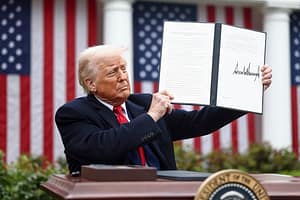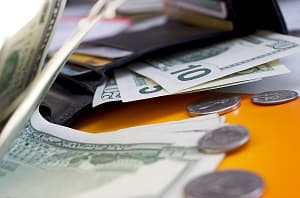The chief executive of the London Chamber of Commerce and Industry on how to improve London’s exports
There is a simple and certain way for Britain to achieve a full recovery of our still ailing economy. This strategy is actually easier to implement because of our present economic difficulties. And almost every politician and economist agrees that it is a path we should follow.
What is this magic cure? It is something we have been good at for centuries: exporting.
With the pound effectively having undergone a major devaluation, our goods and services are extraordinarily competitive around the world.
There are of course many companies both large and small travelling the globe seeking and finding new customers. I get to see this first-hand at the London Chamber of Commerce and Industry, where we organise numerous trade missions and trade seminars each year.
Unless we achieve a dramatic turnaround, our fragile recovery is in danger of stagnating for years to come
But the brutal truth is that there are not enough companies getting out there and exploring new markets.
The latest trade figures showed that while exports are rising, imports are rising by more, meaning that any rebalancing towards net exports is a long way from being achieved.
More worrying is a recent London Chamber of Commerce survey that showed that only just over a third of companies are actively exporting, despite the favourable conditions and the weakness of the pound. As for the rest of companies questioned, only a hugely disappointing six per cent are even considering exporting their goods and services.
Yet this in one of the most productive, innovative and successful cities on the planet. Unless we achieve a dramatic turnaround, our fragile recovery is in danger of stagnating for years to come.
UK Trade & Investment, the government agency with the job of increasing UK exports, does a great job and works tirelessly to encourage and advise exporters. It will however need all the help it can get if we are to achieve the sort of increase in exports required for our way to recovery.
UKTI helps fund many of our trade missions, as it does with Chambers of Commerce up and down the country. Such funds are precious and spread thin, so we at the London Chamber have decided to increase the number of missions we run by joining with commercial partners to create a programme that does not rely on state funds.
I attended the first of these missions last month in Brazil. We targeted smaller companies to take part, as they are key to an export boom.
British Airways provided free return flights to each business on the mission, the Accor hotel group provided a fantastic room rate, and KMPG briefed the companies in Brazil on how to succeed in this booming market as well as giving them a chance to network with local firms.
We hope we are starting the business equivalent of the Big Society – a co-operative effort for the sake of the wider economy.
As politicians never tire of telling us, we are all in this together. On promoting exports I hope trade missions such as these are just one small example of business doing its bit.
There is no doubt we need to do more, but so does government. We need more companies to think about international trade.
As our survey shows, the overwhelming majority of companies are just not considering the idea of exporting. Changing this will require the sort of blanket awareness-raising advertising campaign that only governments can put on.
What about Sir Terry Leahy as our ambassador in China, where Tesco is so active?
Next, we need to ensure that UKTI has the resources to give practical advice to individual companies when they start to think about venturing overseas.
And when companies are overseas, they need the help of our embassies and high commissions. From the Ambassador down, the staff at our foreign posts need to regard helping companies of all sizes as one of their primary jobs – in fact in many places it should be the primary job.
We have some very talented foreign office staff across the world as well as some wonderful buildings. The government must ensure they are doing all they can to help exporters.
In certain countries, we should be considering using the talents of our senior business people. Other nations certainly feel this is worthwhile.
Louis B Susman is the United States ambassador in London. He is a banker and a lawyer who for 27 years was a partner in a St Louis-based law firm specialising in mergers and acquisitions. He is therefore bound to understand the priorities and concerns of companies coming to Britain to sell their wares.
Charles Rivkin is the US ambassador in Paris. He is a former president and CEO of the Jim Henson Company, the creator of the world famous Muppets. Who better to champion exports in the vitally important media sector?
We have equally talented business people with “diplomatic” skills honed not in the Foreign Office, but through years of successful deal making. Trade Minister Lord Green, formerly chairman of HSBC, is a good example of this thinking in the UK.
But should we go further? What about Sir Terry Leahy as our ambassador in China, where Tesco is so active? We should be asking such successful business people to serve their country in a different arena. I am sure many would regard it as a challenge they would take up and relish.
Everyone agrees that an increase in exports is vital to our economic recovery. I hope our trade mission to Brazil, made possible by three business partners vital to the London economy, will be the first of many.
With business playing its part, government must ensure that it is using the available resources – still huge despite the cutbacks – to the country’s best advantage.





Leave a Comment